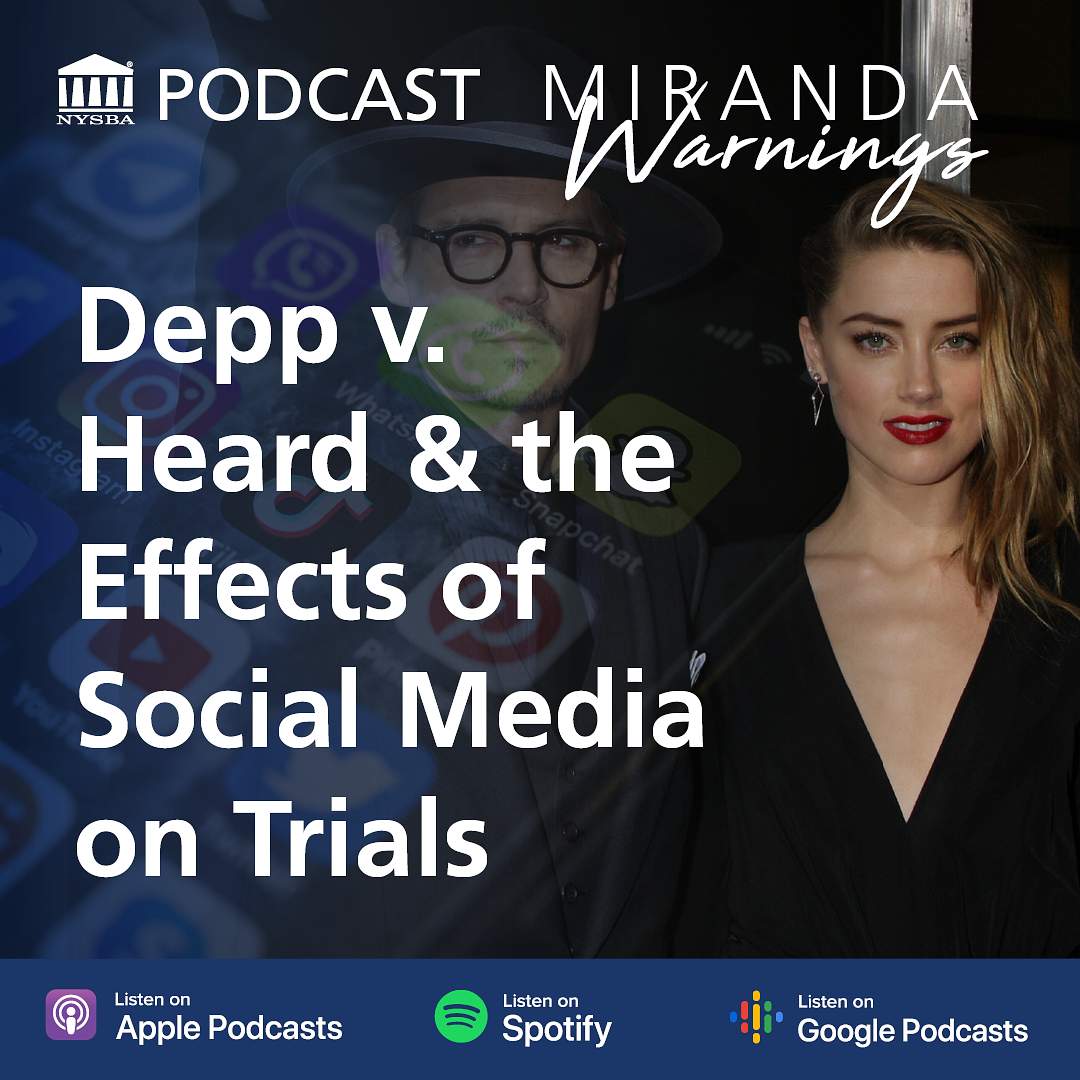Social Media Can Change Outcomes in the Courtroom
10.24.2023

Social media affects the public’s perception and results of jury trials – and legal experts are examining the true impact.
Brian Donnelly and Gary Muhlstock, partners at Cullen and Dykman, discussed how social media has already affected court cases in a New York State Bar Association Continuing Legal Education course.
The Effect on Jurors
“Does social media affect jury trials?” asked Donnelly. “The answer is a resounding ‘yes.’”
Muhlstock talked about how his neighbor was called for jury duty in federal court, and started googling the involved parties when he got home. “He knew everything about the case and hadn’t even been put on the jury,” he said. “This was a perfect example of what goes on behind the scenes that we as the trial attorneys don’t even know about.”
According to research, Muhlstock’s neighbor is not alone in the urge to look up litigants in a court case. In a questionnaire, 46% of participants said they would search for a defendant on social media if they were serving on a jury. The panelists suspect that an even greater percentage of jurors conduct social media searches. “It’s too easy to do and I think people can’t resist that temptation,” said Donnelley.
The panelists noted that attorneys should account for this external factor during jury selection. Judges should also remind prospective jurors not to research litigants, but that is not binding.
Celebrity Court Cases
The panelists singled out the Depp v. Heard case as how social media could change the outcome of a jury trial.
Actor Johnny Depp sued his ex-wife, Amber Heard. for defamation. She had written an op-ed in The Washington Post identifying herself as an abuse victim. The article did not name Depp. A court in London ruled against Depp, and he tried again in the United States.
As the public watched the case in real time, memes and posts mocking Heard and backing Depp proliferated across social media. On TikTok, a hashtag supporting Depp had 20 billion views, while a hashtag supporting Heard had only 7.5 million views. Fans gathered outside the courtroom each day to support Depp.
“This was what the jury was being exposed to on a regular basis,” said Muhlstock, adding that the jurors were not sequestered and that Heard’s lawyer felt that the cameras had reduced the trial to a popularity contest. “I think having cameras in the courtroom was a big difference from the London trial.” He also noted the “chilling effect” this case could have for abuse victims coming forward.
In the end, the jury decided that both Heard and Depp were liable for defaming each other but Heard was awarded $2 million in damages while Depp was awarded $15 million, showing they took one side’s claims more seriously than the other.
Armchair Experts
It’s not just celebrities who get disproportionate social media attention in the courtroom. The increase in true crime, like the Netflix documentary “Making A Murderer,” invites the public to get involved with cases.
The panelists discussed a murder case in Israel as an example of public involvement.
In 2006, construction worker Roman Zadorov was accused of murdering 13-year-old Tair Rada at her school. He was found guilty and sentenced to life in prison in 2010. Although Zadorov had initially confessed to the murder, he later recanted his confession and claimed he was innocent. Over the years, many people – including Rada’s mother – agreed that Zadorov was not the murderer, due to inconsistencies in the evidence.
In fact, a Facebook group supporting Zadorov is the third-largest in Israel, with 250,000 members. In this group and in other social media, so-called armchair experts share evidence and theories about the trial, with some speculating that one of Rada’s classmates was the actual murderer.
“We have people who may have little to no qualifications who are acting as these armchair experts,” said Donnelly. “None of these people can be subject to cross examination in a courtroom.”
Zadorov was given a retrial in 2023 and was acquitted based on new evidence. “Much of the continued investigation into the case was because of the massive media attention,” said Donnelly. “And the sustained nature of this online discussion about the case… Social media actually affected the outcome of this case.”
The CLE was sponsored by the Torts, Insurance, & Compensation Law Section, the Trial Lawyers Section, the Criminal Justice Section and General Practice Section. The full discussion is available on demand.






